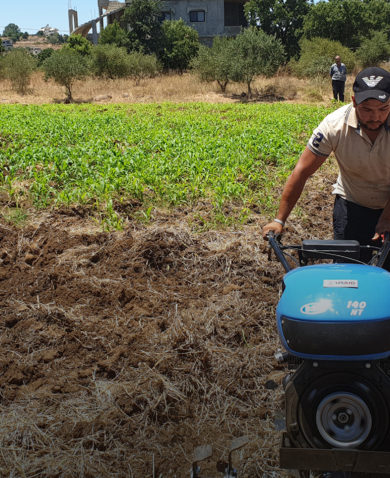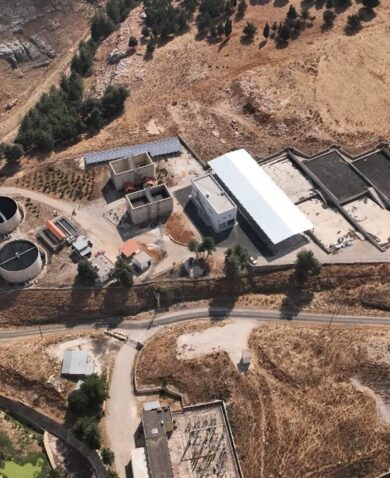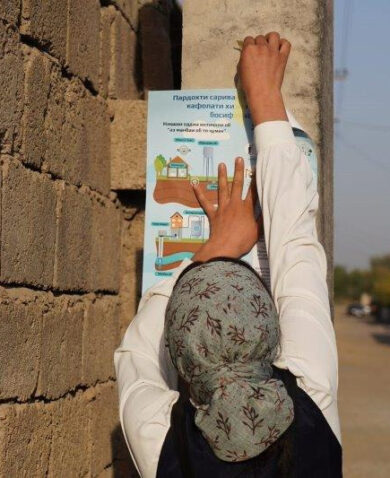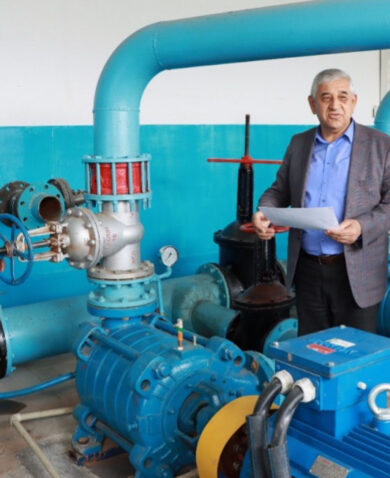
3 Questions with Barbara Rossmiller on Responsive Development in the Water Sector
April 5, 2023 | 3 Minute ReadOur senior advisor for water and sustainable cities programs reflects on the importance of sustainability, inclusion, and a cross-sectoral approach in implementing effective water and sanitation programs.
For over 30 years, Chemonics has worked with local governments, private sector partners, local communities, and other stakeholders to effectively implement water security, sanitation, and hygiene (WSSH) programs worldwide, ensuring those living in both urban and rural areas have access to safe, clean water. To ensure that WSSH interventions are sustainable and responsive to people’s needs, it is important to understand the operating context – who are the decision-makers? what are the challenges to access and uptake? where are the opportunities for scaling and sustainability?
Barbara Rossmiller, senior advisor for Chemonics’ water and sustainable cities technical practice, reflects on her nearly thirty years of experience in the water sector, which includes experience managing multidisciplinary programs in post-conflict or politically challenging environments.
1. What drew you to a career in international development, and in the water sector more specifically?
International development has always been a passion of mine. Six months in Ecuador as an undergraduate on an internship with a human rights NGO solidified my commitment. What drives me is that our work makes a tangible impact that benefits people’s lives. It’s such a privilege to work on these issues every day. I was drawn into the water sector halfway through my career, which was initially focused more on community development, governance, and institutional strengthening. When I became a chief of party in Cyprus for the USAID Supporting Activities that Value the Environment (SAVE) program and we turned what is often a conflict driver—managing water scarcity—into a platform for reconciliation, it changed the course of my career. I have worked in water ever since. I continue to be motivated by working with such dedicated colleagues to improve water security and access to WSSH services, which is so central to people’s health, dignity, and prosperity.
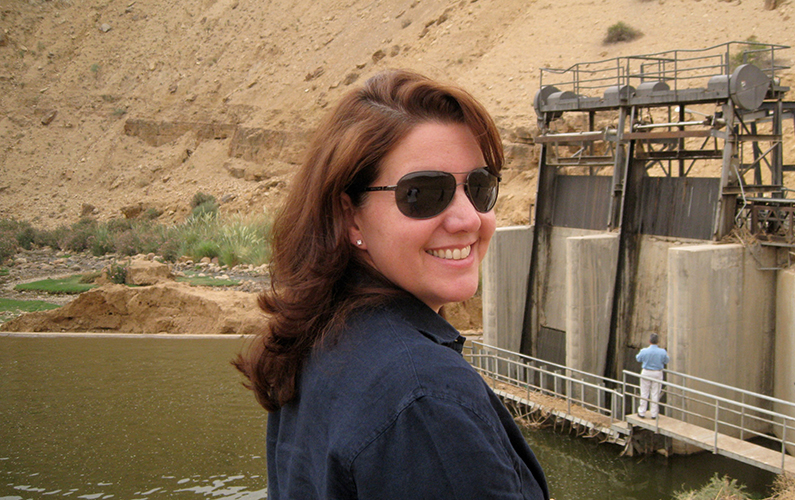
2. How does a region or country’s unique political, social, or environmental context impact a population’s access to safe water and sanitation?
Context is really key when it comes to access to safe services for both water and sanitation. This is important because it determines how a community, municipality, or government manages available resources, how much importance is placed on access to water as well as sanitation services, whether access is equitable for marginalized and vulnerable populations, and who is able to influence sector outcomes. Our learned experience, as well as sector evidence, is that durable outcomes must strengthen these local systems.
Here at Chemonics, we have the benefit of working not just within the water sector but on systems strengthening in multiple sectors and we regularly apply these lessons from health, agriculture, environment, economic growth, and local governance programs. It’s also important to recognize that this context can change really quickly when the sector faces shocks from natural disasters, conflict, political instability, economic crises, climate change, or disease outbreaks. For example, our Lebanon Community Support Program has introduced solar technology to power vital water and wastewater installations that can no longer afford the fuel for generators as the country navigates a protracted political and economic crisis.
3. As you look ahead towards the next five years in the water sector, what trends or opportunities excite you most?
Tackling access to sanitation in a rapidly urbanizing world, particularly for informal settlements and slum areas, is one of the key issues we face as a sector now and in the coming years. Access to reliable and safe sanitation is so fundamental to human dignity and personal security, yet this remains a major challenge in almost every country where we work. The magnitude of the challenge is massive and traditional sewered sanitation simply cannot meet this need in so many places. It’s exciting to develop new modalities and strengthen innovative approaches for decentralized service delivery models. We’re working closely with our partners and counterparts in government, civil society and the private sector to develop city-wide solutions which integrate traditional utility services with informal service providers, community-based organizations, private sector providers, and municipalities. A key part of this is also determining how best to adapt the governance and regulatory frameworks to effectively manage a decentralized system and provide oversight. This work is just getting underway on our USAID Lagos Urban WASH Activity which is confronting these challenges in addition to significant climate change impacts on their WASH systems. We look forward to building partnerships with local authorities, service providers, communities, and the private sector to deliver improved water and sanitation services to 4 million people in low-income communities in Lagos, the largest and most populated city in Nigeria.
To learn more about Chemonics’ water security, sanitation, and hygiene work, we invite you to explore this page.
Banner image caption: The USAID/Southern Africa’s Resilient Waters Program builds more resilient and water-secure communities and ecosystems through improved management of transboundary natural resources and increased access to safe drinking water and sanitation services.
Posts on the blog represent the views of the authors and do not necessarily represent the views of Chemonics.







